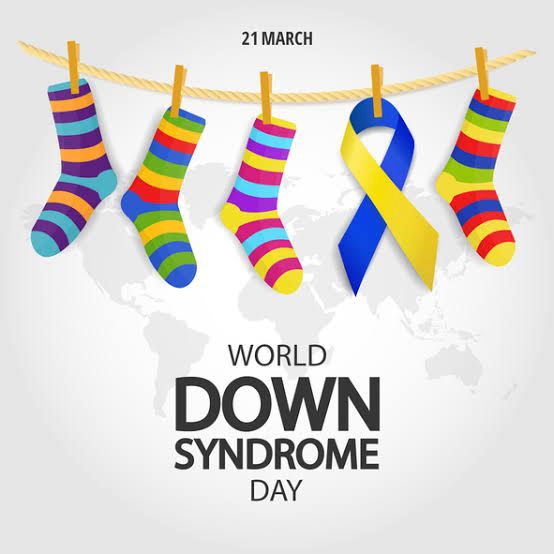
World Down Syndrome Day!
- Home
- World Down Syndrome Day!

21st March, World Down Syndrome Day, the objective of this day is to spread awareness about Down Syndrome, commonest genetetic disorder
On this beautiful day on my way to my laboratory situated near the capital city glanced at the long beds of “flowers’ the loveliest creations of Mother Earth that seem to be smiling and waving along with their progenies of all possible colors of life. While going ahead on the path the big peepal and neem trees standing tall on the pavements on either side of the driveway seem to be renewed with vitality and blooming full of energy with a whole new generation of saplings along with their branches dancing in joy to the cold breeze reminding arrival of springs and festival of color round the corner. I reached my desk and spotted that 21st March, World Down Syndrome (DS) Day is also approaching this weekend which reminded me of the commonest genetic disorder prevalent in our society. At the same time, a colleague informed me about a blood sample collected from a 10-month-old baby somewhere in the central part of the country with a clinical suspicion of DS along with clinical notes highlighting atypical phenotypic features including flat face, small nose, low set ears, single palm crease in hand, sandal gap in toes along with developmental delay and heart abnormalities.
In the modern world, most couples planning to welcome newborns into their families realising their dreams of parenthood must have come across the word ‘Down syndrome', especially during their first three months of the pregnancy. DS was first reported in the literature in 1866, when Langdon John Down, a British physician practicing in London treated a group of children with unique physical and mental characteristics and intellectually challenged children under his care. Almost about a century later after the phenotypic description of DS, LeJeune in 1959 first time reported the cause and identified the occurrence due to an extra copy of chromosome 21 from patients with DS. It is the most prevalent autosome chromosome abnormality in live-born babies, occurring in approximately 1 in 800 births worldwide. Unfortunately, population-based data on the birth prevalence of Down syndrome are critically lacking in the Indian medical literature and roughly affecting around 1 in every 830 live births.
After the required number of days of conventional culture of a 10-month-old baby blood sample in laboratory conditions, we got to observe results with an extra copy of chromosome 21 in all the metaphase of cell cycle under the light microscope thus confirming the diagnosis of DS. One of the most reliable investigations for confirming the presence of chromosomal abnormalities in a developing fetus is chromosome analysis, which is often known as karyotype. Even after many decades of DS discovery, this untreatable disorder is still unheard of or unidentified in many parts of the country including many small towns and cities due to lack of social awareness about the genetic disorders. As a result, this rare genetic disorder remains undiagnosed during pregnancy, and babies are stillborn in the absence of timely interventions to reduce the genetic burden. The early diagnosis of DS prenatally before the birth of a child is challenging due to a small number of trained and experienced doctors and the lack of implementation of universal prenatal screening for detection of DS. The implementation of highly sensitive prenatal screening methods can screen women at high risk of having a DS and now must undergo invasive procedures by collecting tissue samples from the placenta or amniotic fluid from the pregnant woman. This approach can further reduce the risk of miscarriage or fetal loss related to the procedures performed only by experienced and trained doctors at the super specialty centers. But still, these children born with Down syndrome have a ray of hope to live happily and contribute to society, if intervened early by speech therapy, physiotherapy, and occupational therapy and provided with proper medical attention for different health issues commonly observed in DS and thus can have a better long-term outcome as compared to other genetic causes of intellectual disability. In addition with involvement of right patient support groups (https://downsyndrome.in/) many affected children can be effectively managed along with the right treatment protocols as per professional body recommendations and can live happy and productive lives (https://iapindia.org/pdf/care-of-child-with-down-syndrome.pdf).